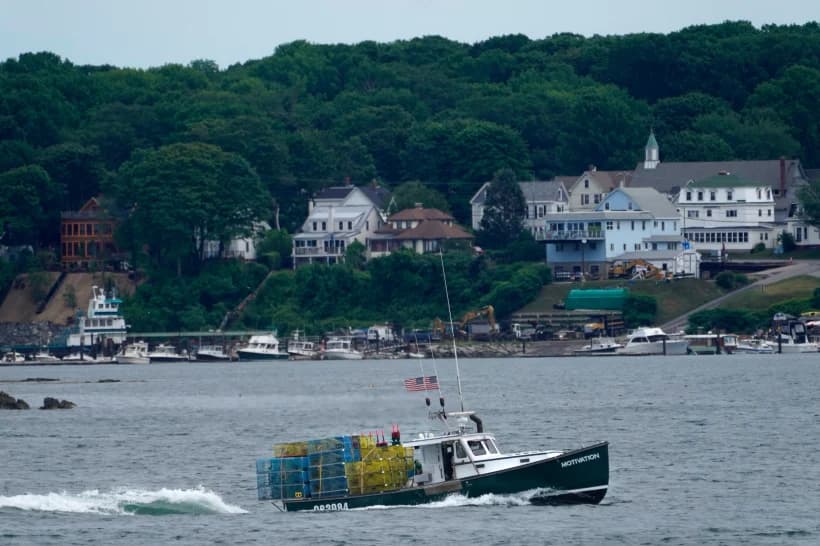Around the world, the fishing industry is facing new challenges – and the Catholic Church is working to raise awareness and advocate on behalf of those who make their living on the sea.
Cypriot Costas Kadis, the European Commissioner for Fisheries and Oceans, held a dialogue on Monday, Nov. 24, dedicated to small-scale and coastal fisheries in the EU.
“Small-scale fishers are at the heart of our coastal communities. Today’s dialogue is an opportunity to listen to their realities and to work together on practical solutions that strengthen their resilience and ensure a sustainable future for this essential part of our maritime fabric,” he said at the meeting in Brussels.
The encounter just days after World Fisheries Day, which took place on Nov. 21.
On that occasion, Cardinal Michael Czerny – Prefect of the Dicastery for Promoting Integral Human Development – stressed that fishers must be given a voice and be allowed to actively participate in decisions that affect their lives and work.
“Voice must be given to fishermen lest the policies and laws that affect them be discussed only by those who ‘live and reason from the comfortable position of a high level of development and a quality of life well beyond the reach of the majority of the world’s population’,” the cardinal wrote, quoting Pope Francis’s encyclical letter, Laudato si’, in his Message to mark the day.
The Church has an official outreach for seafarers, The Apostleship of the Sea, commonly known as Stella Maris – Star of the Sea – active for many years in various ways and in many places around the world, officially linked to the Vatican’s Dicastery for Promoting Integral Human Development.
On Nov. 13, Pope Leo XIV formally established the Apostleship of the Sea as the central and coordinating body of the Work of the Apostleship of the Sea, approving its statutes.
“Formally establishing the Apostleship of the Sea, commonly known as Stella Maris, as the central and coordinating body gives the mission a defined structure at the heart of the Holy See,” said Tim Hill, the CEO and National Director of Stella Maris UK.
“Following the restructuring of the Dicastery for Promoting Integral Human Development, this new arrangement demonstrates Pope Leo XIV’s continued commitment to the People of the Sea,” he told Crux.
“While maintaining close ties to the Dicastery, the new structure provides the right platform for coherent strategic direction, guidance and stronger coordination across our global network. It also strengthens our ability to advocate for meaningful change that improves the lives of seafarers, fishers and their families worldwide,” Hill added.
The meeting at EU headquarters noted small-scale fisheries sustaining local economies, preserving cultural heritage, and sustainable fishing traditions.
It also looked at challenges such as competition for maritime space, access to fishing opportunities, climate change, soaring operational costs, invasive species, and fluctuating market demands.
Speaking to Crux, Hill also looked at the challenges Stella Maris observes in the fishing industry.
“Implementation of regulations and the enforcement of those rules vary widely. Many fisheries provide safe working conditions where crews are treated with dignity and respect, but others face excessive hours, inadequate rest, poor living quarters and limited access to medical care or legal support when problems arise,” he said.
“Long periods at sea also bring isolation and separation from family, adding further strain. These vulnerabilities can be heightened for migrant fishers, who may have less protection and fewer avenues for assistance when difficulties do occur,” the Stella Maris UK National Director added.
Hill also spoke about the emerging reality of Artificial Intelligence (AI), which is affecting all industries, including the fishing industry.
“AI is being explored across the fishing sector, particularly for supporting sustainable practices and improving safety at sea, including reducing the risk of vessel collisions,” he said.
“These developments have real potential to enhance the wellbeing of fishers, and we welcome innovations that make their working lives safer and more secure. It remains vital, however, that those directly affected are consulted and actively involved in shaping any new systems,” Hill told Crux.
Follow Charles Collins on X: @CharlesinRome













